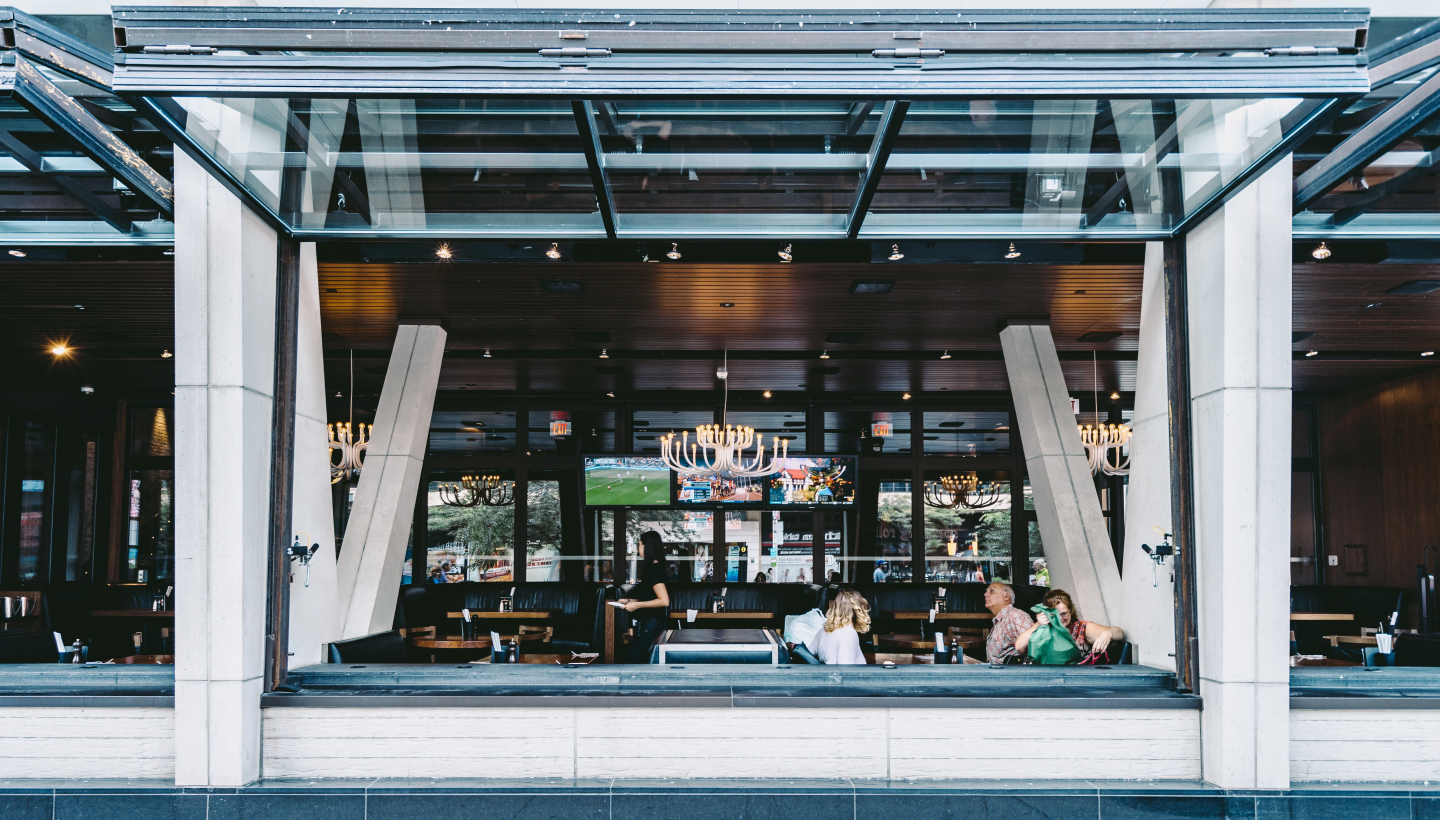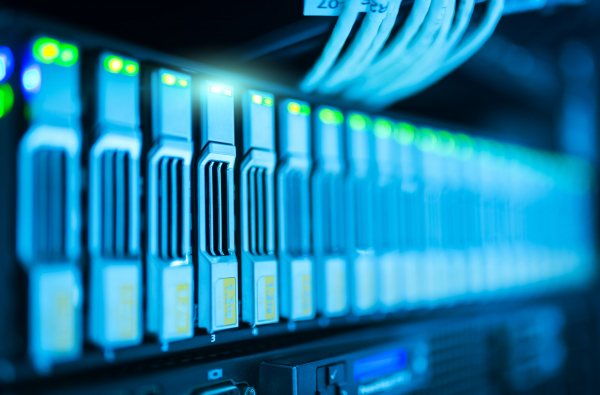Although the director of McDonald's Consumer and Business Unit, Alejandro Hermo, bets on maintaining the human component, he also imagines a future with intelligent burgers that know the tastes of their customers as soon as they walk through the door.
The fast-food sector has not been a pioneer in the incorporation of new technologies. But something seems to be changing, or so the director of McDonald's Consumer and Business Insights director, Alejandro Hermo, believes. He is convinced that the new digital tools are largely responsible for the excellence of their operations. In addition, he relies on the value of the data so that the customer can live a more complete experience in his restaurants. And he says that the automation of some processes, such as order kiosks, have not replaced at all his human workers, which he considers more important than ever.
Is technology one of McDonald's competitive advantages?
Undoubtedly, it is what has made McDonald's what it is, although historically there has been a greater focus on technology applied to behind-the-scenes operations. In fact, McDonald's is the one who brought the fast service operations to full splendor, and that's where we're continually innovating to deliver a better and faster experience.
As far as the consumer is concerned, it is true that there have not been very disruptive innovations in the past, but in recent years a lot of work has been done to provide a better customer experience, as we know that it is key to differentiate ourselves. For example, McDonald's pioneered the incorporation of order kiosks, which in recent years have been one of our hallmarks.
MIT Technology Review has just published its annual selection of the 10 technologies that will have the greatest impact on society and the economy. This year's list includes several cross-cutting technologies capable of transforming different industry sectors and revolutionizing processes and business models. One of the technologies on this year's list is artificial intelligence services in the cloud. These platforms would make it possible to bring artificial intelligence to everyone and to any sector (e.g. personal assistants/chatbots). What do you think of this trend?
Well, precisely when we were deciding how to launch the home delivery a couple of years ago, I remember that Domino's was starting to use a chatbot and we thought: "Wow, it seems like science fiction that we can order food by chatting with a robot, but it's already here!" We know where to go from a point of view of technology applied to experience, and that technology gives you a certain competitive advantage, but we are in a sector that is not yet a pioneer in the application of these technologies. I think it costs us more than other sectors to adopt them; think for example of Tesco doing a CRM of the highest level and more than 10 years ago, and is something that is still incipient in our sector.
Is home delivery an opportunity or a threat?
At the end of 2017, it was decided that McDonald's was going to deliver globally, with the goal of becoming the world leader in a short time. Unlike some direct competitors and pizzerias, which have their own motorcycles, we decided to rely on expert partners, since we are not experts in logistics and technology, and we will never be at the level of those who dedicate 100% to this task.
Does the emergence or development of these new technologies help McDonald's apply them to the user rather than behind the counter?
Of course, and we know that this is key in order to get to know the consumer and give them the best experience. We have an infinite amount of data that we were not taking advantage of, and that are key to better understanding the consumer. However, these data are often not connected to a particular consumer, unlike in other sectors. If we are able to link consumer data to individual consumers, everything starts to fit and you start to be able to move from mass marketing to individualized marketing, which is what we aspire to give each of our customers what is best for them at all times.
At the moment, since these data exist, but most cannot be directly associated with customers, how does McDonald's use them?
We use them for example in the operational part, to know what to produce and to be very exact in our forecasts; as well as in the business analysis part. However, the rest is in how you use that data to get to know your customer better. We have 350,000 transactions a day in our restaurants, the challenge is to analyze and connect them.
For example, if our client is a weekend parent and a Big Mac fan, we could offer to try the new Grand Big Mac at a good price only Monday through Thursday. And that's where we want and need to get to know our consumers better and make ourselves relevant to their daily routines. Right now we are doing a more massive marketing and we must move towards a more personalized marketing maximizing all the possibilities that technology offers us.

Recently, Inditex launched an augmented reality (RA) pilot project in its stores, becoming one of the pioneers in the retail sector. Do you think RA will revolutionize the sector? What impact will augmented reality have on your company?
What Inditex is doing and the way it is innovating in its sector is brutal. Responding to how RA can impact the foodservice sector, we have two components. One is food, where I think a priori it is more difficult to incorporate augmented reality. But there is also the customer experience part, which is not much explored in this sense. Imagine the children's play areas, everything they could do with augmented reality. Think of a McAuto, there's a lot of room to be creative, to make the experience better and faster. I'm sure that in the future we will be able to work to incorporate RA into our restaurants and make the experience much better.
Is there a race to be a pioneer in the application of these technologies?
Certainly there is, but it's relatively slow. Also, with the type of technology that is being developed and adopted at the moment, it doesn't mean that the first to incorporate a technology takes all the cake, because there hasn't been that level of disruption that there has been in other sectors yet. Will there be? Sure, but today it is not clear where it will come from.
How do the top managers of the organisation adapt to the disruption that is coming? And what capacities do they need to tackle it?
I think it is necessary to differentiate between the role of the manager and the role of the teams. It is undoubtedly necessary to balance and nurture the team with digital native people. It's not only because they can be digital specialists, but also because they are profiles that are all day connected and updated, and because, in general, they have the most open mind to disruption. Is there going to be a lack of people with this profile? Yes, they are. They are expensive and in demand. And in the end, you ask yourself if it is a capacity that you need 100% on the staff, or if it is preferable to have a partner specialized and strong in digital. Having said that, I think it's always a good idea to have some more specialist key profile internally who knows where the technology is moving, and who has the knowledge and credibility to talk to external partners.
With respect to managers, I don't think they should be specialists in digital issues, unless the position requires it. But they should have a clear idea of where the technology is going and how it applies to their sector. Whoever is making strategic and investment decisions must have knowledge of what is happening in the market, what others are doing and what technologies are coming in the short, medium and long term. Otherwise, we have seen examples of companies that have disappeared because they have arrived late or have not reacted to a disruption in their sector.
What impact is the creation or destruction of jobs having on your sector?
When a lot of people come to McDonald's and order at a kiosk, the first thing that comes to mind is that before there was a person who took your order, and that the kiosk is replacing it, which is a job destroyed. But the reality is very different, that kiosk technology allows us to offer a better experience in the order, and devote that person's time to provide a hospitality service that differentiates us in the sector.
At the organizational level, how should McDonald's adapt to the changes to come?
If you read some interviews with our CEO, you will hear that one of his priorities is to change the mentality of the company to adapt to the new times and competitive environment. McDonald's has 60 years of history in which nothing was thrown or changed until it was perfect. Now we are trying to move towards a culture closer to fail fast, which allows us to be more flexible and faster. The challenge we face is that any change in the way things are done is always complicated.
How do you imagine the future of McDonald's?
Consumers have changed more in the last 10 years than in the last 60 years. We have to adapt, and of course, it will change from the food point of view, incorporating new trends and products such as bio or organic, but also a lot in the experience part. We insist on this part because in the end, the center of our business will continue to be consumption and experience in restaurants. Home delivery is going to grow, but the Spaniard is going to want to keep eating out.
The future, and I hope not too far away, I imagine it with the customer entering through the door, the system recognizes that he is in the restaurant, you approach the kiosk, he says good morning calling his name. It shows him what he ate last time and offers him to try something new and relevant to him. Then he sits at the table and we bring him the food.
It is critical that there continues to be a human component to give the best experience, that's why we can't conceive it without someone to receive him at the restaurant or to attend him at the table asking if everything is okay. Not everything is black and white, technology will play a very important role, but at the same time, we must continue to give the human component the importance it deserves.
Isn't it going to be a robot who takes the food to the customer's table?
Honestly, I don't see it in our country. There are cultures in which it may fit better, but not in a very personal and close culture like ours. I think you will always need that human component, someone who asks you how you are and smiles at you, and who is part of that good time you spend in the restaurant.
By Editors of the MIT Technology Review in Spanish



